Since the escalation of Israel-Palestine conflict earlier this month, Bangladesh has arranged to send medical aid to Gaza, observed national mourning day on the 21st of October and organised mass prayers for Gaza. How has the commitment of Bangladesh to the freedom of Palestine fared over the past decades and where it stands now?
The world needs to be reminded that the current conflict is between a state and an organization as we observe the relentless and horrific Israeli airstrikes that continue to claim Palestinian lives in Gaza. Since October 7, the world has watched as Israel has conducted a disastrous military campaign in Gaza in retaliation for the Hamas attack on Israel, which left more than 1,400 Israelis dead. In Gaza, Israel is violating human rights on a massive scale. For instance, the Israeli airstrikes have forced roughly half of Gaza’s 2.4 million residents from their homes. It has imposed a complete blockade on the enclave, stopping the supply of food, fuel, and medicine, all of which are quickly running out. In light of this, the ruthless destruction of the densely populated Gaza Strip, which has already claimed the lives of over 2,000 Palestinians more than 700 of whom are children—as well as the suspension of food, water, and electricity supplies as well as the withholding of humanitarian aid in response to these attacks constitute unethical actions and breaches of international law.
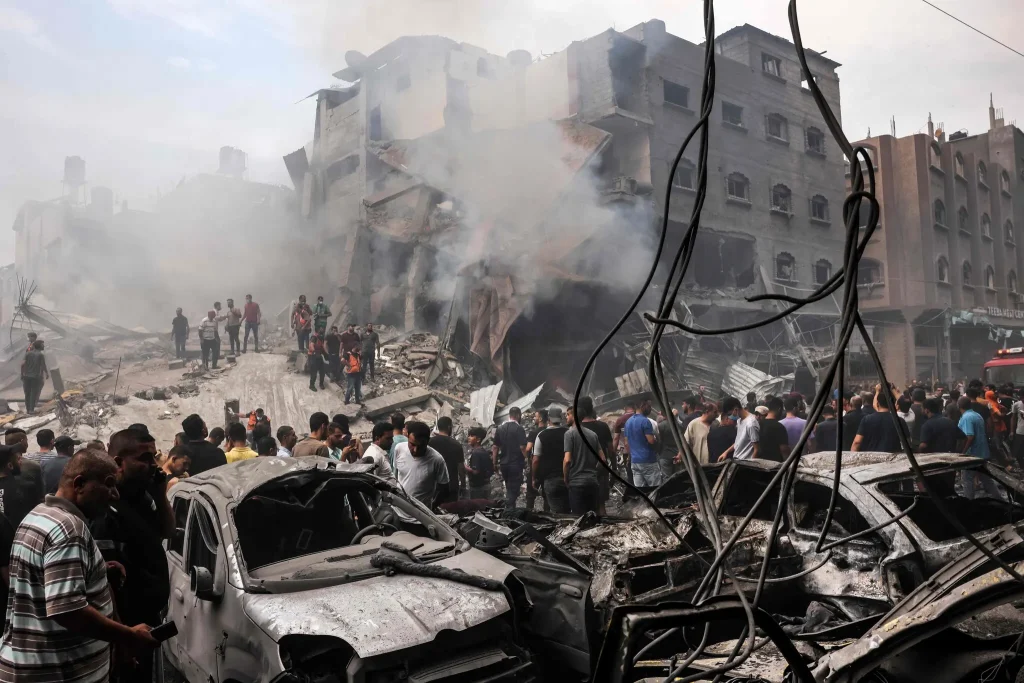
The systematic oppression of Palestinians has long held a place in the collective conscience of Muslims across the world, or the ummah. Muslims throughout the globe have watched as Palestinians have experienced recurrent forced relocation, excessive collective punishment, and statelessness for decades. As a Muslim-majority country, Bangladesh always shows sheer commitment to supporting the cause of Palestine. In January 2023, when the ambassadors and high commissioners of seven OIC member states, who are stationed in Dhaka, PM Sheikh Hasina said Father of the Nation Bangabandhu Sheikh Mujibur Rahman supported Palestine and following this she has been standing beside the Palestinians. She also asked the Muslim Ummah to collectively stand beside the Palestinians. Israel and Bangladesh do not have diplomatic ties, and trade with Israel is restricted until Israel ends its military occupation of Palestine.
Bangladesh reaffirmed that the Israel-Palestine conflict can only be resolved through dialogue and diplomacy and urged all parties to work toward this goal. Bangladesh also emphasized that no party benefits from conflicts and violence escalating. Bangladesh also noted that the continued Israeli occupation of Palestinian territory and the imposed settlements there will not result in regional peace. Bangladesh is in favour of the United Nations’ two-state solution following UN Resolutions No. 242 and 338, which would see Israel and Palestine coexist as sovereign, independent states without military rule. Bangladesh’s Prime Minister Sheikh Hasina called for ending all wars, including the latest one between Israel and Palestine. “We do not want these wars. As a mother–not a woman politician or prime minister–I will urge world leaders to stop these wars,” she said. Against such a backdrop, Bangladesh has condemned the ongoing armed conflict between Israel and Palestine and lamented the casualties it has caused, including innocent civilians.
The Government of Bangladesh instructed all religious institutions to hold mass prayers during the Juma’a prayer on the 20th of October for the deaths in Palestine. Bangladesh has also committed to send medical aid to the injured in Gaza, as the country also did in 2021 Israel-Palestine conflict.
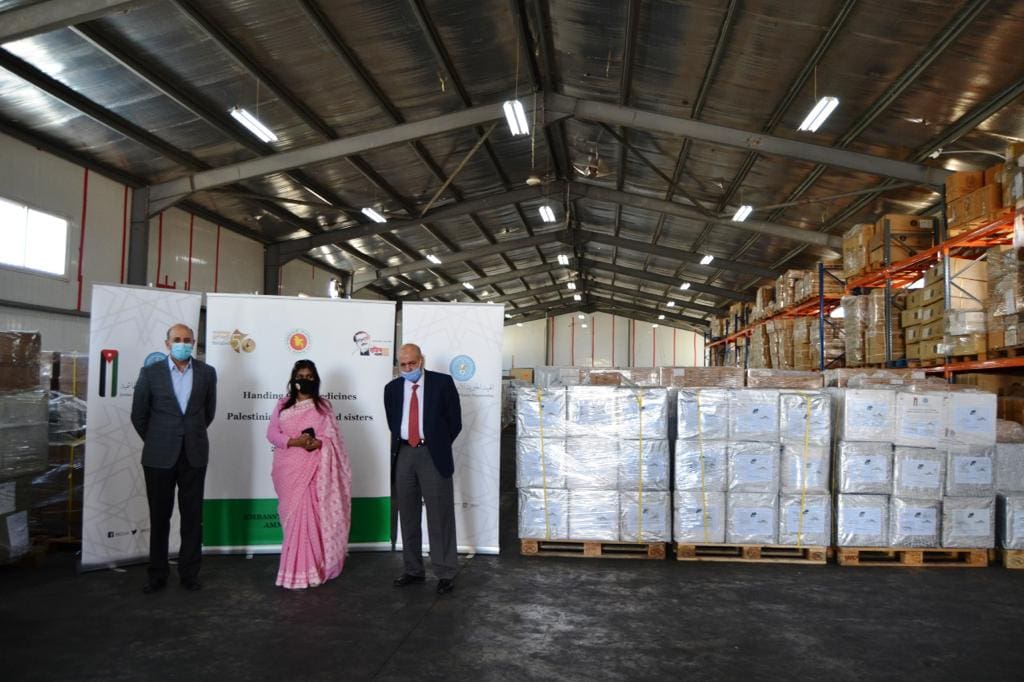
Bangladesh has also observed a nation-wide mourning for the loss of innocent lives in Gaza on the 21st of October and kept the national flag half-staff for the entire day.
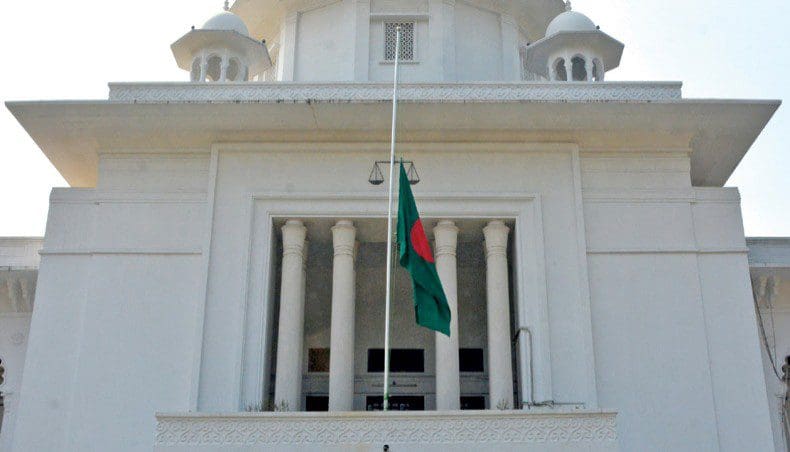
Bangladesh’s Unwavering Commitment to Palestinians’ Cause
Palestine and Bangladesh enjoy cordial and intimate bilateral relations. Bangladesh has no connections to Israel and has continuously backed the Palestinian quest for independence. Additionally, Bangladesh offers scholarships to young Palestinians and Palestine keeps a mission in Dhaka. Prime Minister Sheikh Hasina has always called on Muslim countries to unite in support of the Palestinian cause, stating that Bangladesh has maintained a strong stance on the matter since its establishment in 1971. Bangladesh’s pre-independence Prime Minister Tajuddin Ahmed readily rejected Israel’s offer of recognition and military backing during the war, which is when the country first became involved in the Palestinian cause. Since then, throughout the political spectrum, true commitment to the Palestinian cause has proven elusive. Bangladesh has consistently allied with Palestine in all diplomatic fora. The Father of the Nation of Bangladesh, Sheikh Mujibur Rahman, was a fervent advocate of the legitimate rights and just fight of the Palestinian people, and Bangladesh has upheld this position ever since its creation. During the 1974 OIC summit in Lahore, he also had a meeting with Yasser Arafat, the leader of the Palestinians. Bangladesh has demonstrated its commitment to supporting oppressed people worldwide through its active activities, vocal opposition to Israel’s occupation of Palestine, and decision to join the Non-Aligned Movement (NAM).
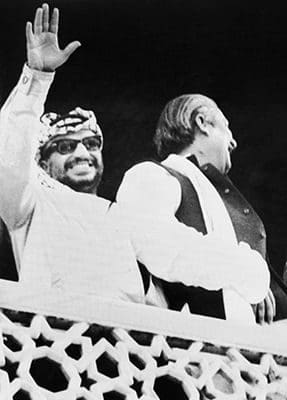
Our struggle for independence and the horrific experience of the worst sort of genocide in 1971 were what spurred us to demand an early resolution to this lengthy issue and to speak out against the injustice and oppression that the Palestinian people had suffered for decades. Bangladesh sent a medical unit and relief supplies to the war-torn nation of Palestine in 1973 as part of its support for Palestine’s battle against Israel in the October War. With the blessing of the Father of the Nation, the following statement was added to every passport: “This passport is valid for all countries in the world, except Israel.”
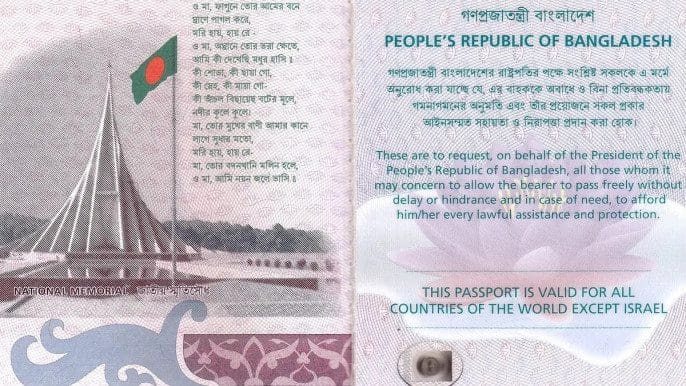
A postal stamp depicting a Palestinian freedom warrior was created in 1980. It included the Al-Aqsa Mosque in the background, encircled by barbed wire, with English and Arabic text endorsing the Palestinian militants as “valiant.” Bangladesh’s dedication to the just cause of Palestine hasn’t slightly changed since adopting the humanitarian foreign policy of the Father of the Nation. Like his father, Prime Minister Sheikh Hasina has consistently advocated for the Palestinian people in a variety of bilateral and multilateral fora. The Palestinians hold a “special place” in our hearts, according to Prime Minister Sheikh Hasina.
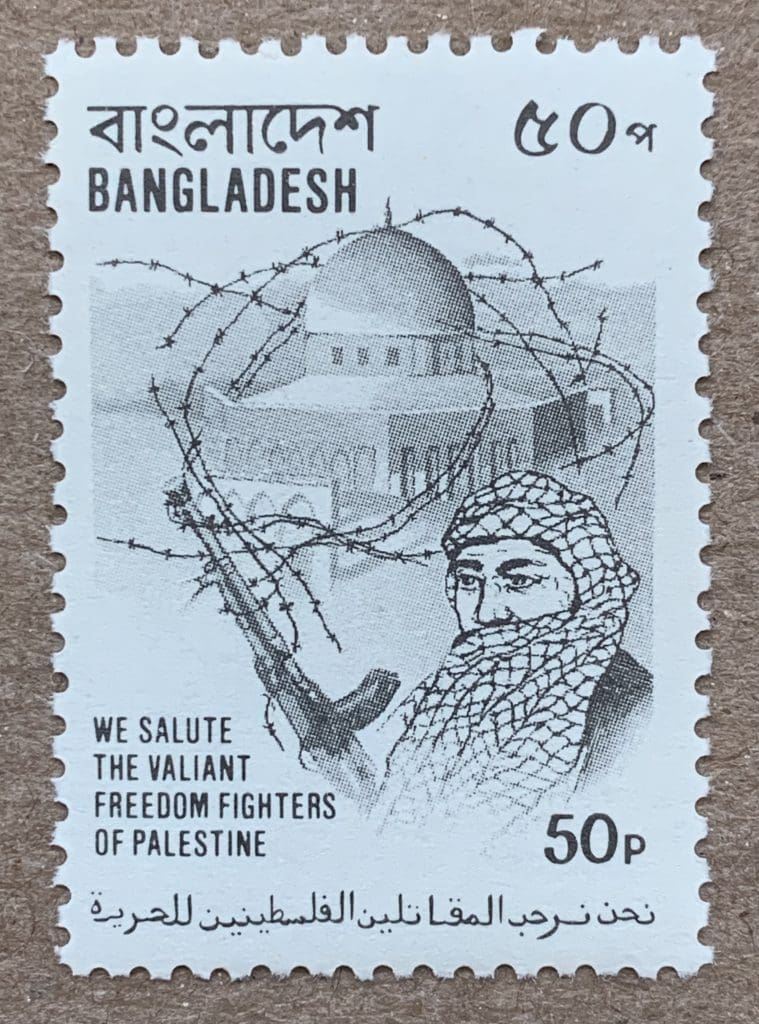
The occupying forces have repeatedly violated human rights as a result of the cycle of impunity and the international community’s callous attitude. Bangladesh vehemently condemns all hostile and illegal actions taken against Palestinians, particularly the most recent crimes carried out by the occupying force in the Palestinian Territories. Bangladesh pleaded with the international community to work together to find a just, peaceful, and long-lasting solution to the Palestinian conflict.
Bangladesh: A Symbol of Humanitarian Foreign Policy
While the West unabashedly denounced Hamas’s attacks, did they wilfully overlook Israel’s continuous slaughter of Gaza’s civilian population in front of their very eyes? The violence in this never-ending cycle will only result in more deaths, destruction, and desperation. Is it possible for the West to forget that it watched helplessly while a state took its vengeance on innocent people? Is it able to take away the reality that Palestinians have been under siege and denied their rights for more than 70 years? Bangladesh’s principled stance to support oppressed peoples fighting a just war against imperialism, colonialism, or racism is enshrined in the constitution of the nation. Thanks to the leadership of Sheikh Hasina, the daughter of Bangabandhu, Bangladesh has recently taken a more active part in preserving global peace and security. Bangladesh continues to demonstrate to the world that it always stands with the oppressed people all over the world at a time when the world is forgetting the sufferings of thousands of innocent Palestinian adults and children.
Furthermore, Bangladesh’s response went beyond merely supporting Palestine financially and diplomatically; it also urged the Muslim Ummah and the larger international community to act against illegal Israeli occupation and to stop violence against Palestinians. The death of Palestinians in Israeli attacks has been remembered with a day of national mourning, held on Saturday, October 21, 2023. To save innocent civilians in Palestine, the world must take immediate action. More specifically, the United States must respect the equal rights of all people and work to resolve the ongoing Israel-Hamas conflict. Meanwhile, Bangladesh vehemently denounced the ongoing war.
However, it issued a warning to Israel, stating that “living under Israeli occupation and constructing forced settlements in Palestinian territory will not lead to peace.” Dhaka reaffirmed the viability of the two-state solution. The Israel-Palestine conflict has existed for a long time. Regional tensions in the Middle East may arise if the ongoing Gaza conflict is prolonged. Therefore, the ongoing conflict between Israel and Hamas requires urgent attention from the international community. As the decades-old crisis has gone unresolved, the international community has ignored the Palestinian people’s long-standing suffering and complaints.
Cover photo shows a Palestinian man sitting on the rubble of a destroyed house, after 11 days of fighting in May between Israel and militants, in the Gaza Strip on July 4, 2021. Photo: Mahmoud Issa/SOPA Images/LightRocket.
About the Author

Saume Saptaparna Nath is an MSS student at the Graduate school of International Public Policy, Osaka University and a MEXT Scholar. She has worked as a research Associate at The KRF Center for Bangladesh and Global Affairs (CBGA). She has pursued her graduation and Post-graduation from the Department of International Relations, University of Dhaka.
1 comment
[…] campaign in Gaza in retaliation for the Hamas attack on Israel. Since then Bangladesh has sent medical aids to Gaza, observed national mourning day on October 21 and arranged mass prayers in mosques for the […]